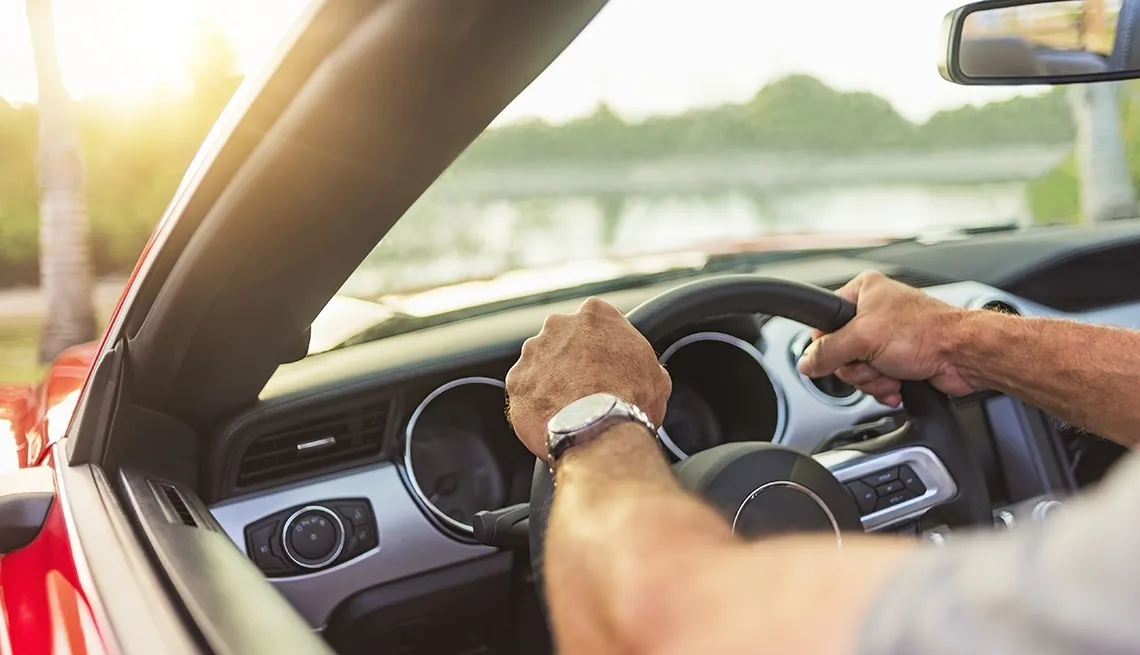A drop in blood glucose below the levels considered normal, that is, hypoglycemia, represents a danger to road safety if it occurs during driving.
People with more risk - individuals with type 1 diabetes or with type 2 diabetes who follow insulin treatment - must adopt certain precautions to avoid traffic accidents.
"A good diabetological education, which allows to know the foods rich in carbohydrates and knowing how to use insulin, is the basis for hypoglycemia prevention," summarizes Serafín Murillo, a researcher at the Diabetes Unit and exercise of the Biomedical Research Centerin the network of diabetes and associated metabolic diseases (CIBERDEM) and the Clinical Hospital of Barcelona.
It should be clarified that not all patients in insulin treatment have the same risk;This is greater, as Virginia Bellido points out, of the Endocrinology and Nutrition Service of the Cruces Hospital (Baracaldo, Vizcaya) and spokesperson for the Spanish Diabetes Society (SED), “In people with bad metabolic control, history of hypoglycemia,long evolution of diabetes and complications such as autonomic neuropathy. ”
stop the car and adopt urgent measures
When hypoglycemia occurs during driving, the most important thing is to keep calm and follow the following steps:
Stop the vehicle as soon as possible to do it safely, in order to avoid major evils, such as the loss of knowledge at the wheel.
Measure blood glucose.A value below 70 mg/dl will confirm that it is hypoglycemia."In the event that a glucose control cannot be performed, given the suspicion of a hypoglycemia, it is necessary to act as if it were," says Bellido.
It is recommended to take 15 grams of rapid absorption carbohydrates.For example, two envelopes of cafeteria sugar (or three lumps) or a glass of packaged fruit or marketed products containing 15 grams of glucose.
Repeat glucose control after 15 minutes and, if hypoglycemia persists, 15 grams of rapid absorption carbohydrates will have to be ingested again.Once the hypoglycemia episode is resolved, 10-20 grams of slow absorption carbohydrates must be ingested (between two and four cookie cookies, 20-40 grams of bread ...).
"In case of failing to correct hypoglycemia, emergencies should be called because confusion and loss of knowledge could occur," the thirst representative adds.
know how to recognize the symptoms
To act correctly following the steps described above, it is essential to know how to recognize the symptoms of hypoglycemia.Tremor, tachycardia, sweating, feeling of great hunger, weakness, irritability, nervousness, dizziness ... are the most common.
However, at this point an important obstacle arises: the manifestations are not the same in all individuals and in some they go unnoticed."Not all people with diabetes are clear about the symptoms of hypoglycemia," says Murillo."It is estimated that around 20% of patients do not present those symptoms."
preparations for car trips
Whether they are people who clearly recognize the alert signals of hypoglycemia as if not, it is best to prevent the problem before it appears.To do this, it is essential to prepare the trip by car well and take into account the following precautions:
First of all, it is essential to know the potential causes of hypoglycemia, such as insufficient carbohydrate intake at meals, an excessive insulin dose, errors in its administration or the increase in physical activity.Assess the blood glucose level before starting the trip and, when it comes to a long journey, measure it every hour and a half or two hours."You can take advantage of stops to rest, hydrate and stretch your legs to monitor glucose," Murillo advises.It also warns of the danger of trusting when it comes to a short journey, which can be complicated with a jam and become a longer trip.Bellido comments that, "depending on the type of treatment that the patient follows, if the glucose is below a certain figure before driving it is recommended to take a carbohydrate supplement."
Continuous glucose monitoring systems can help better diabetes control and prevention or reduction of hypoglycemia.
Always carry food with rapid absorption carbohydrates, such as sugar, juice or tail soft drinks to treat hypoglycemia.
"It is important to highlight that you have to avoid fat -rich foods -chocolates, cakes, cookies- because when the increase in glucose is Ingenous is slower," says Bellido.


